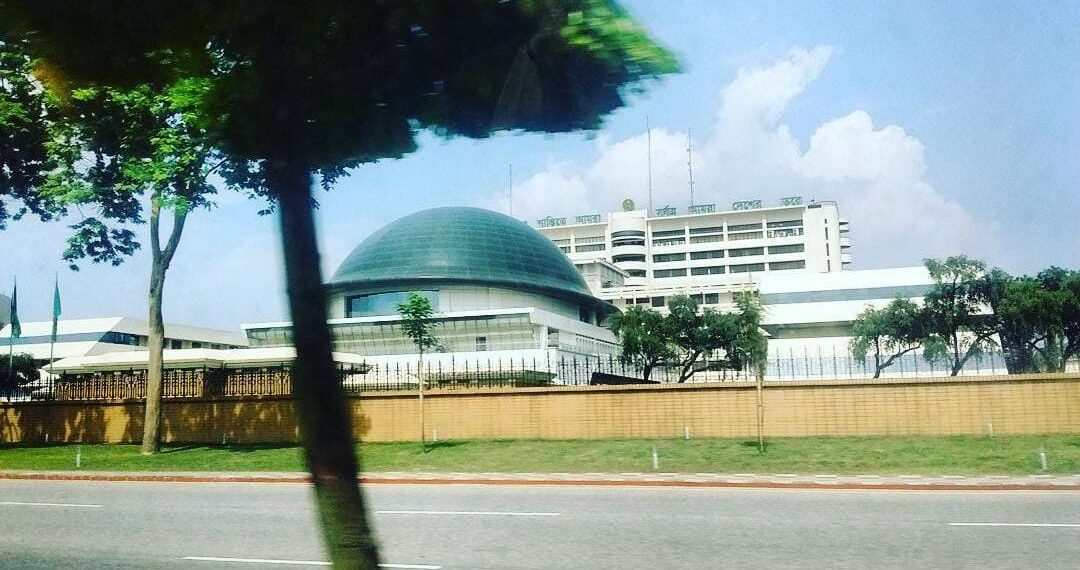More than 48 hours before Bangladesh Army authorities arrested and lodged 14 of the 24 officers in a facility at Dhaka Cantonment’s ‘log area’, the accused persons have not been produced in a court of law as mandated by the country’s Criminal Procedure Court (CrPC).
While the 14 officers were arrested on October 11 evening, there is no information whether the Army officers, charged by the International Crimes Tribunal (ICT) for their alleged involvement in enforced disappearances, secret detention and torture during Sheikh Hasina’s 15-year rule, have been given access to lawyers.
Even if the accused officers have been detained, the action is illegal and violative of their constitutional rights as the time period for detention without production in a court of law is well beyond the mandatory 24 hours.
In Bangladesh, a person arrested under a warrant must be produced before a magistrate within 24 hours.
This 24-hour period is a constitutional and legal safeguard against arbitrary detention. If the arrestee is not presented to the magistrate within this timeframe, they are entitled to be released through a writ of habeas corpus.
It is now clear that since the ICT passed orders on October 8, when it issued arrest warrants against the 24 Army officers, the authorities at Dhaka Cantonment moved swiftly to arrest the accused persons and lodged them in the ‘log area’.
On October 12, a Home Ministry notification established a Military Engineering Service (MES) facility as the sub-jail where the 24 officers will be tried.
Besides, the accused persons will be lodged in a facility for Visiting Senior Officers’ Quarters (VSOQ) within Dhaka Cantonment.
This building’s security is being enhanced to protect the accused officers and avoid any untoward incident.
It is evident that 14 of the 24 Army officers, who remain lodged in a building in Dhaka Cantonment’s ‘log area’, will be shifted to the VSOQ facility.
The 1952 Army Act takes a different position when compared with the provisions of the Bangladesh CrPC, on the issue of arrest and production in a court of law.
Section 74 of Chapter VIII of the Army Act says, “Every commanding officer shall take care that a person under his command when charged with an offence is not detained in custody for more than forty-eight hours after the committal of such person into custody is reported to him, without the charge being investigated, unless investigation within that period seems to him to be impracticable having due regard to the public service”.
Now, the charges brought against the 24 accused Army officers at the ICT are under Sections 3(2)(a), 3(2)(f), 3(2)(g), 3(2)(h), 4(1), 4(2), 4(3) read with Sections 20(2) and 20A.
The ICT order of October 8 says, “the accuseds (sic) committed crimes against humanity as laid down in Section 3(2) read with Sections 4(1), 4(2) and 4(3) of the International Crimes Tribunal Act, 1973”. The ICT then took cognizance “of the said crimes”.
ALSO READ: UNICEF, ICC, and CII-YI unveil roadmap to empower girls in Assam’s tea gardens and flood-prone areas
What is surprising is that even on October 12 when Major General Mohammad Hakimuzzaman briefed the media about the 24 accused officers before claiming that “justice” needed to be done while also pointing out that the Army was “committed to fairness and accountability”, did not take into cognizance the fact that 24 hours had lapsed and by which time the accused persons should have been produced in a court of law.
The Army’s selection of a separate facility (VSOQ) where the accused officers will be lodged goes against the law of the land, especially when seen in respect of political prisoners (scores of Awami League leaders) who, after being arrested, were produced before magistrates and then lodged in civil prisons such as Kashimpur Central Jail.
It is also learnt that the accused officers had in their possession their mobile phones at least till October 12 night.















